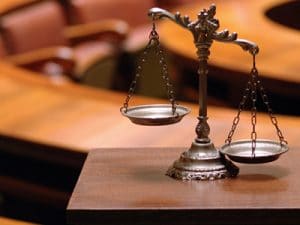
Psychological and IQ tests can play an important part in criminal trials. Juries, judges, and lawyers are not experts in psychology and these tests often prove persuasive.
However, recent research suggests courts are failing to properly screen out this evidence, allowing ‘junk science’ to influence court proceedings.
A study published in February in the journal Psychological Science in the Public Interest considered hundreds of psychological tests used in recent court cases. Researchers found as many as a third weren’t reviewed in psychological manuals. Nearly a quarter of those that were reviewed were found to be unreliable, ABC News reported.
Tess Neal, an Arizona State University psychology professor who co-authored the study, said the psychological tools courts routinely admit are variable in quality. They contain a lot of “junk” that should be filtered out, she said. The research found questionable methods are routinely admitted into court proceedings.
Researchers found legal challenges to the psychological tests occurred in less than 3 percent of cases.
Psychological tests are used in many court proceedings in Texas including to establish whether a defendant is eligible for bail or capital punishment. They are also used in family proceedings such as child custody decisions.
Dan Simon, a law and psychology expert at the University of Southern California Law School, said the paper is significant because “many people’s fates are determined by these tests.” Simon was not involved in the research.
The study was based on 876 court cases in the United States between 2016 and 2018. It reveals the psychological test most commonly used in the courts was the Minnesota Multiphasic Personality Inventory.
While the test garnered generally positive reviews from professionals, the second most common test, the Rorschach test, is seen as ambitious and selective by some scientists. This test, also known as the inkblot test, was developed in the 1920s. In the test, a participant is shown a series of 10 inkblot cards and directed to respond to what they see. It was inspired by the idea that a schizophrenic subject sees things in unusual ways.
The February study isn’t the first to question the use of psychological and IQ tests in criminal trials. The National Research Council released a detailed report in 2009 on courtroom science that warned “testimony based on faulty forensic science analyses may have contributed to wrongful convictions of innocent people.”
Simon warned the courts are failing to exclude junk science from juries in accordance with the federal rules of evidence.
The unwillingness of courts to question and challenge psychological evidence may be leading to miscarriages of justice. Texas is no stranger to wrongful convictions and often leads the national exonerations table. It’s important to hire an experienced criminal defense lawyer who can challenge junk science, whether it’s psychological or forensic evidence. Please call our Dallas criminal defense team at (214) 720-9552.
